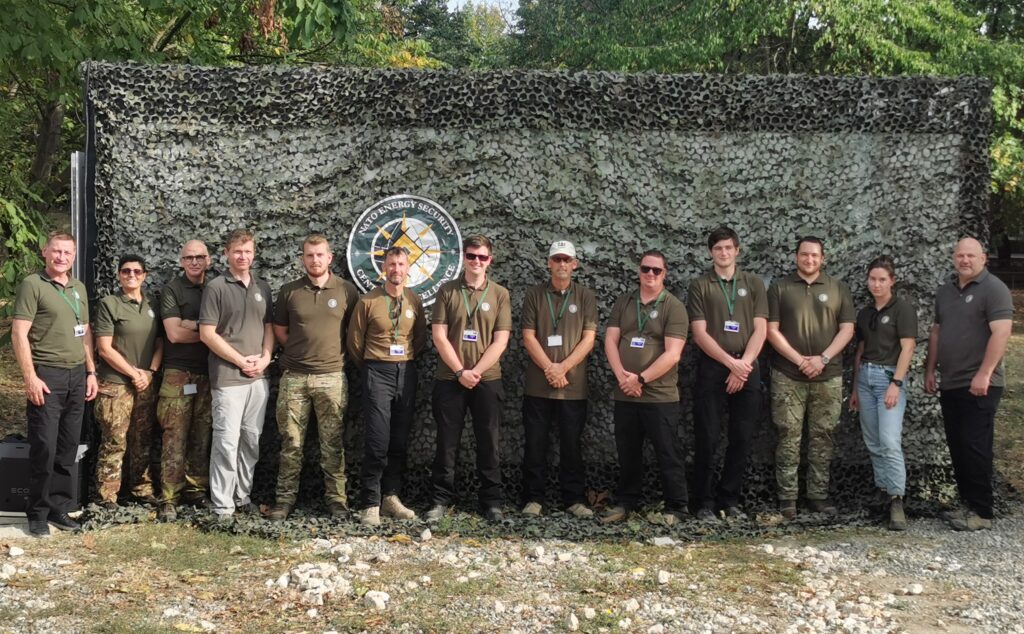
An experimentation phase of the NATO Operational Energy Concept (OEC) development has been carried out within the NATO exercise Steadfast Jupiter 2023 (STJU23) in Romania. The experiment has been led by the NATO ENSEC COE with the support of the OEC Experimentation Team (ExpTeam) of scientific and industrial partners from the Natural Resources Canada, (CanmetENERGY, Government of Canada), US Army Engineering Research & Development Center (ERDC), Belgian Armed Forces, Italian Defence General Staff. The NATO Allied Rapid Reaction Corps (ARRC) exercise component provided Training Audience (TA) and experimentation environment.
The NATO ENSEC COE together with the international ExpTeam were conducting a multi-layered experimentation campaign in support of the NATO OEC Development Project, which started in early 2021. The NATO OEC development is linked to the NATO Warfare Development Imperative (WDI) “Layered Resilience” of the NATO Warfighting Capstone Concept (NWCC).
The OEC experimentation is the result of a two-year effort involving NATO countries and institutions. It builds on the work and analysis carried out by the Centre’s experts and the NATO OEC Writing Team.
The STJU23 exercise has been identified to support NATO OEC experimentation initiative with deployed force infrastructure environment. The core interest of the ExpTeam forms among energy consumption data and operational procedures.
The NATO OEC experimental activities should lead to a better understanding of deployed forces operational energy streams, identify and rate areas of sufficient operational energy consumption improvement and verify enhanced defence posture of the forced enabled through NATO OEC.
The ExpTeam acted as simulated Energy Management Cell proposed by NATO OEC and artificially applied energy data to operations. A dedicated Energy Manager from ExpTeam was implemented as a silent player into exercise on J3/J4 level. The NATO OEC experimental activities were qualify and quantify the Energy Manager’s contribution to the military operations and validated the NATO OEC findings. Besides, it was possible to measure the benefits of using new energy storage technologies, to verify how the adoption of specific procedures can implement energy efficiency while safeguarding operational effectiveness. The phase of power project experimentation showed how efficient the Field Electrical Power Supply (FEPS) is against a modern generator and a hybrid generator.
Following the experiment, the Centre will prepare a report summarizing and evaluating the results and conclusions of the OEC experiment, which will be reflected in the final version of the NATO OEC.